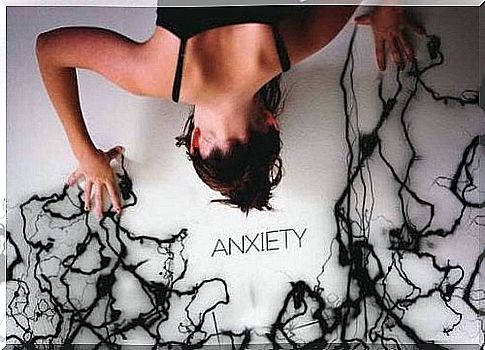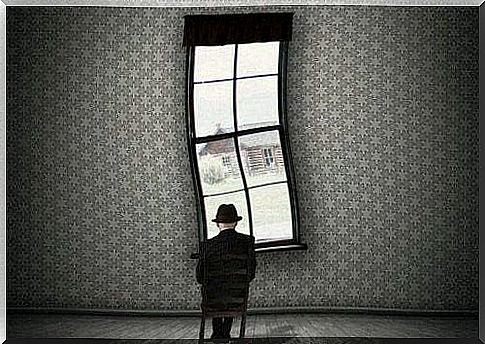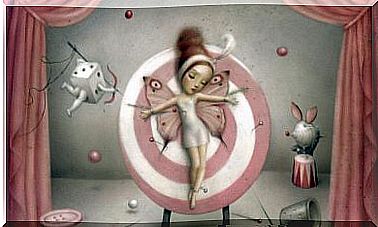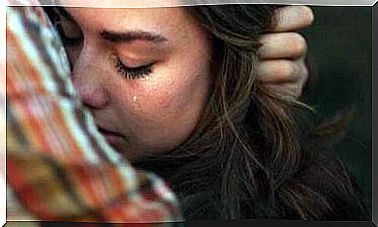The Most Common Types Of Anxiety: There Is A Solution To Everything

Anxiety is one of the great evils of our times. In fact, there are different types and more and more extensive classifications continue to appear. It is not so strange if we take into account that the times in which we live are often too demanding and the balances, both ourselves and others, are dynamic.
Anxiety is one of the faces of fear. But unlike fear itself, it is not caused by a specific stimulus. Fear is normal when you face a specific threat and you think your integrity is in danger. But anxiety is a type of fear that very often does not have a definite cause, so it is difficult to intervene on the origin of the same or on the factors that make it recurrent.
We understand that we are prey to anxiety when we feel restless, insecure and worried about “something” that is inaccurate or about something specific that we don’t know how to deal with. It is like being inside a free-falling plane, even if you are actually sitting in the living room, watching television. You feel agitation, irritation, discomfort, but you don’t understand why.
There are various types of frequent anxiety. Some people prefer to simply call it stress or worry, but if you dwell a little longer on it, you realize that it is a very serious ailment. The good thing is that various types of anxiety can be overcome. To do this, the first thing to do will be to get to know them a little better.
Generalized anxiety and social anxiety
Generalized anxiety disorder is defined as a state of constant worry, without a specific reason that causes it. It lasts more than 6 months and is generally accompanied by sleep disturbances, irritability, concentration problems and general fatigue.

Social anxiety, on the other hand, is a condition in which the person feels fear or anguish in all situations in which he has to interact socially with others. Put simply, you are afraid of contact with other people. In most cases it is anticipatory, i.e. it occurs before the social contact takes place.
Both conditions significantly deteriorate people’s quality of life. They are states that do not heal themselves with the passage of time, as they are fueled by various evasive behaviors. These are not bad times, but situations that require professional treatment.
In most cases, a short therapy is sufficient to bring the emotions back under control. Other times a longer path is needed, but the probability of overcoming these conditions is very high in any case.
Obsessive disorders and post-traumatic stress
Obsessive disorders are of various types, but they all have in common that there is a persistent and intrusive idea that causes fear or distress. So even if the person in question tries to get a certain idea out of their head, they can’t. These obsessions can come to invade the personality and produce a vital paralysis.

Post-traumatic stress is that state of anguish that occurs after a traumatic experience. It manifests itself as restlessness, difficulty in sleeping and, above all, as a thought that what has already happened will happen again. It keeps the person suffering from it in a continuous state of alert, insecure and isolated.
In both cases, and depending on the severity of the symptoms, there are several ways to overcome the problem. The practice of certain relaxation methods can greatly contribute to reducing anxiety and increasing the ability to concentrate. If these methods are not effective, professional therapy is an excellent alternative, with a great chance of success.
Agoraphobia and hypochondria
Agoraphobia has become one of the most common types of anxiety of our time. It is a widespread fear of all those situations in which you think you don’t have an escape route or in which there is no possibility of getting help if you suffer from a panic attack. In other words, the person thinks that they may be having a panic attack and that under certain circumstances they may not be able to flee or get help. In some ways, it is fear of fear itself.

The number of cases of agoraphobia is growing every day and those who suffer from it have great difficulties in leading a normal life. Something similar happens with hypochondriac people, who interpret any signal sent by their body in a catastrophic way. They suspect they have serious illnesses and feel that their condition can get worse at any time, with no one being able to do anything about it.
In both cases, it is advisable to practice some relaxation methods. These help to reduce or deactivate anxiety and to better identify the signals that our body sends us. In addition, they improve self-control. Regular physical activity helps in this regard. As in other cases, if that’s not enough, the help of a professional is always the best alternative.









